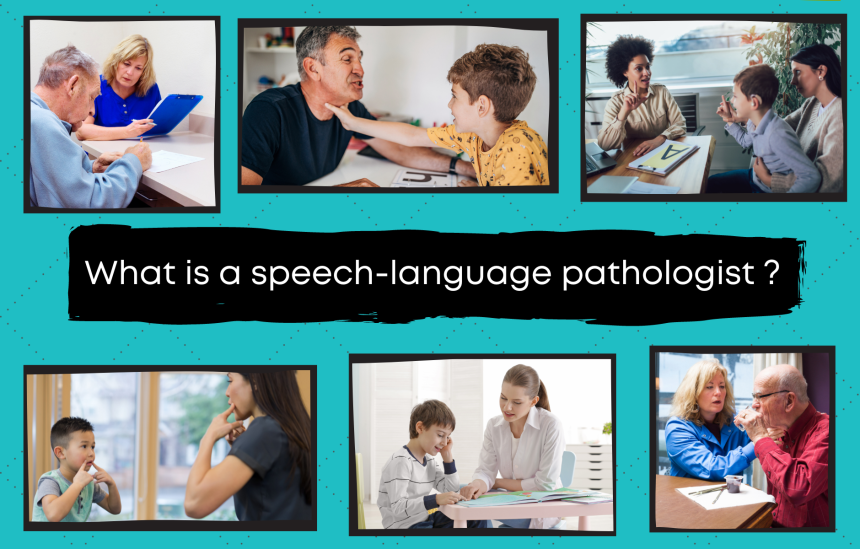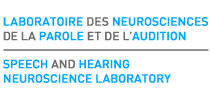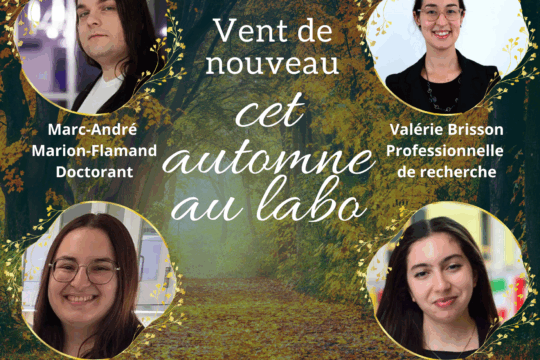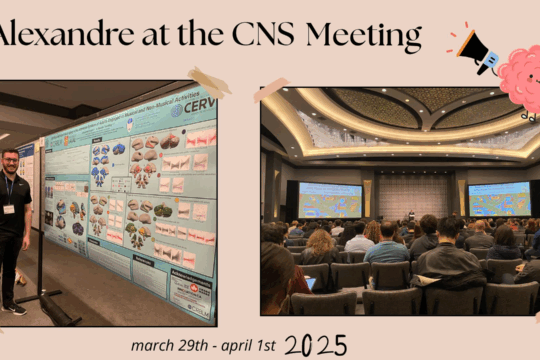
Is a speech-language pathologist (SLP) someone who helps children who have difficulty speaking?
Yes, but the field of expertise of SLPs is far from being limited to this!
The work of SLPs consists of preventing, detecting, evaluating and treating, voice, speech language, communication, swallowing and learning disorders. SLPs work with people of all ages and in a variety of settings: schools and hospitals, rehabilitation centres, CLSCs, private clinics, etc. Their practice is supervised by the Ordre des orthophonistes et audiologistes du Québec (OOAQ), whose mission is to ensure the protection of the public.
In Canada, all SLPs hold a master’s degree. At Université Laval, the master’s program in speech-language pathology is spread over two years (6 semesters). It includes theoretical courses, but also several internships. Successful completion of the program is necessary to obtain a license to practise issued by the OOAQ. It should be noted that certain Canadian provinces and territories also require the passing of an examination to be able to practise.
To provide an overview of the diversity of the roles and functions of SLPs, as well as the people they work with, here are five examples of distinct professional realities of SLPs (the thumbnails and first names are fictitious):
- Pamela works in a hospital environment, in the acute care sector, with people who have suffered a cerebrovascular accident (CVA) or a traumatic brain injury and who are at risk of suffering from a communication disorder. She visits them at their bedside to assess their ability to understand and produce speech and language. Subsequent to the assessment, she informs people and their families about their communication difficulties. At mealtime, she also assesses their swallowing skills (e.g., their ability to swallow solid and liquid foods correctly). If necessary, she recommends rehabilitation services in speech-language therapy after the patients are released from the hospital.
- Philippe is an SLP working in a local community service centre (CLSC). He conducts group meetings with parents who are concerned about the development of their preschool child’s communication skills. During these meetings, he provides information on normal language development and the possible causes of a delay, then he gives parents tips on how to stimulate their child’s language development. He also conducts individual meetings to assess and stimulate the development of the communication skills of certain children. If necessary, he can refer a child to a rehabilitation centre for more intensive and longer-term services.
- Maikan is an SLP working in the school system. He conducts screenings in classes to identify students with difficulties (e.g., stuttering), as well as individual assessments. He communicates the results and his recommendations to the parents and the school staff, in order to support the student’s academic success. If necessary, he conducts individual follow-up meetings. He also co-hosts workshops in communication-related issues with teachers, particularly in classes for students with autism spectrum disorder.
- Fatoumata works in a rehabilitation centre, in the hearing loss program. She assesses the communication skills of children with deafness and performs interventions aimed at developing their speech and language skills, as well as their listening and communication strategies. In addition to intervening directly with children, Fatoumata provides advice and recommendations to families and teachers (e.g., advice on how to use specialized equipment and hearing aids, or on limiting noise in the environment).
- Sébastien is also an SLP working in a hospital. He specializes in voice and resonance disorders and work alongside ENT (ear, nose and throat) doctors. He assesses voice disorders (including overuse as well as vocal fold cancer, for instance) and resonance disorders (e.g., hypernasality due to a cleft palate) in children and adults and develops intervention plans for his patients. He meets with them on a regular basis until the issue is resolved.
- Karine works as a SLP in a private clinic. She works mostly with children of preschool and school age, as well as with adolescents. In addition to consultations in her office, she also offers services directly in the childcare, and sometimes virtually. Many of the young people she meets have language delays or disorders, but she has also developed expertise in orofacial myofunctional disorders. Symptoms of these disorders include, among others, stigmatism (articulation disorder, e.g., a person who lisps or talks on the tip of his tongue).
Obviously, these examples do not begin to cover the full extent of the SLP work! SLPs also work with people with intellectual disabilities, neurodegenerative diseases such as Parkinson’s, laryngeal cancer, etc., because communication or swallowing disorders are often associated with these medical conditions. The SLP’S knowledge of anatomy, physiology, linguistics and psychology allows them to intervene in all these and many other conditions.
It is important to mention that SLPs work alongside many other professionals, such as audiologists, physiotherapists, occupational therapists, psychologists, teachers, special educators, child educators, remedial teachers, etc. This interprofessional collaboration is necessary to take into account the different needs of a person, as well as to coordinate interventions carried out by the different professionals. In this respect, the Faculty of Medicine of Université Laval is truly a leader. It values interprofessional collaboration and teaches it to all students registered in a clinical program. Specialists in different fields often collaborate to offer interdisciplinary teachings. For example, an SLP professor teaches swallowing disorders to future occupational therapists.
Finally, note that SLPs can also work in academia or research, as is the case for Marilyne, who is a research associate in our lab! Further, several members of our laboratory have completed a master’s degree in SLP, before or after their time with us. Every year, we also welcome to the laboratory several students from the SLP program at Université Laval who carry out their end-of-study project under the supervision of the director of the Laboratory, Professor Pascale Tremblay, who teaches in the SLP program at Université Laval.



